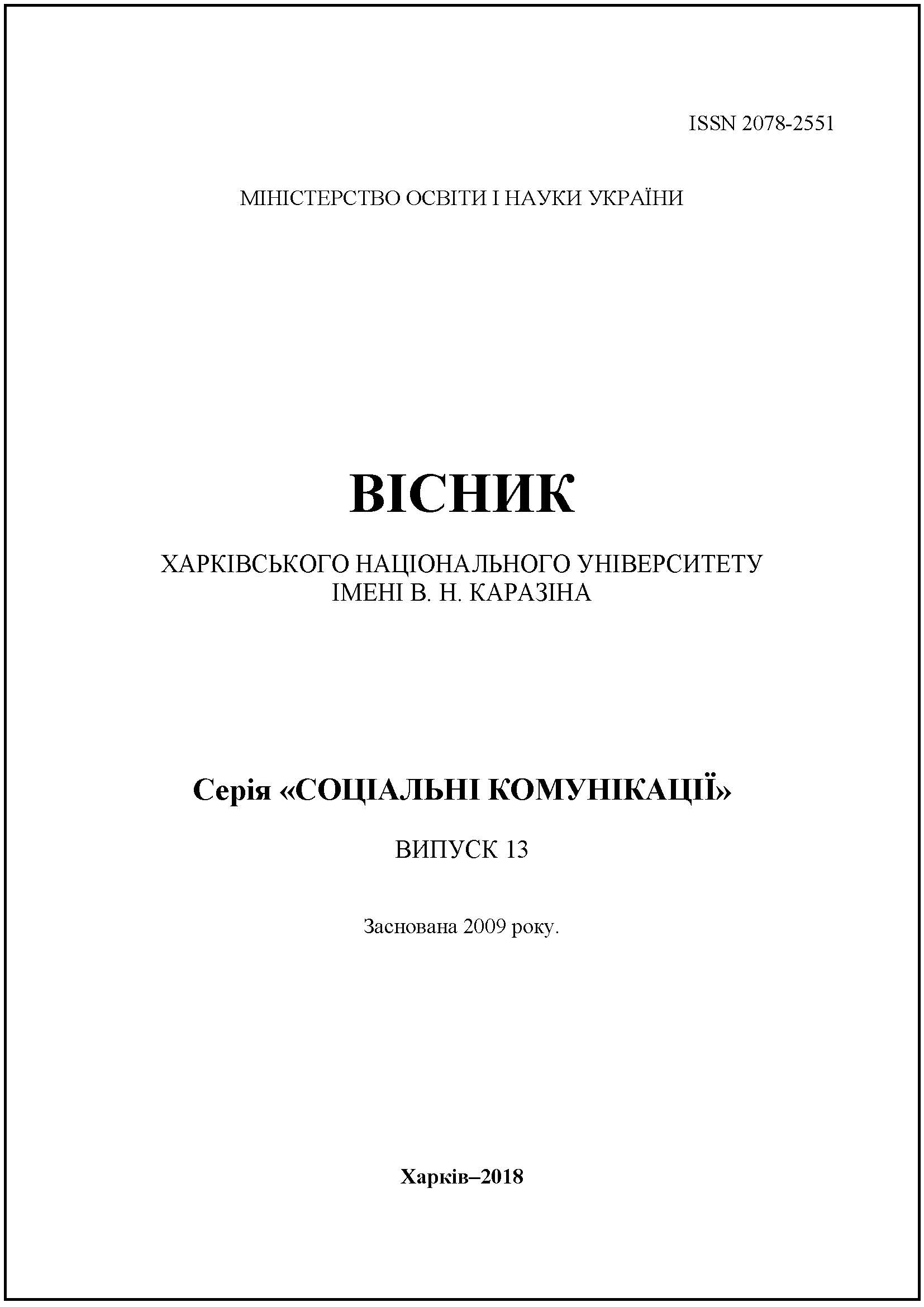Gender aspects of speech: on the example of modern Ukrainian-language printed media
Abstract
The article deals with the use of feminines in the language practice of mass media of Ukraine. Attention is drawn to the expediency of using feminine and masculine genders or the common one instead of the common masculine gender. Examples of feminines making are given. The problem of official formalization in the modern Ukrainian language of ethical and communicative norms, taking into account the gender component, is also found out. The analysis of the quantitative and qualitative composition of new nouns on the designation of persons in the Ukrainian literary language during the period of the end of the XX – the beginning of the XXI century is carried out. It is revealed that on the basis of journalistic texts one can deeper understand the real gender situation in a modern society. Here are considered lexemes that take into account the gender component, that is, feminine equivalents to the nouns of the masculine gender on the designation of individuals, as well as the question of the official fixing of such lexemes in the modern Ukrainian language as normative. It is found out that in linguistics nowadays the importance of the independence of the names on the denotation of female persons, formed by the affixal method, is important. In the Ukrainian language, there are the following female personal titles that arose without male equivalents. It has been established that the gender basis for the names of persons of the feminine gender can be derived from the names of males, as well as from the same foundations as the males’ names. In the modern Ukrainian literary language, the following forthens and their derivatives are used to form nouns for the denomination of females: -k(a), -sh(a), -yts(a) (-lyts(a), -nyts(a), -chyts(a), -schyts(a)), -es(a), -ys(a), -yn(a), -yh(a). The suffix -k gives the meaning of female sex to the full basics of nonscientific nouns of the masculine kind.
Downloads
References
Архангельська А. Неофемінізація новітньої доби як чинник розбудови української мови: у пошуках втраченого? / Архангельська Алла // ХХ–ХХІ століття : жанрово-стильові й лінгвістичні метафорфози в українській мові та літературі : монографія. Оломоуць: Університет ім. Ф. Палацького в Оломоуці, 2016. С. 171–204.
Воловенко І. В. Диференціація родової належності нових іменників на позначення осіб в українській літературній мові : автореф. дис. ... канд. філол. наук : 10.02.01. Київ, 2010. 18 с.
Гендер для медій : підручник / за ред. М. Маєрчик, О. Плахотнік, Г. Ярманової [вид. 3-тє. вип. та доп.]. Київ : Критика, 2017. 200 с.
Гендерна парадигма освітнього простору / за заг. ред. Дороніної Т. О. Кривий Ріг : ВЦ КДПУ. 2016. Вип. 3–4. 200 с.
Комов О. В. Гендерна диференціація українського мовлення (на матеріалі комп’ютерного дискурсу) : автореф. дис. ... канд. філол. наук : 10.02.01 / О. В. Комов; Донец. нац. ун-т. Донецьк, 2014. 17 c.
Малюга Н. М. Продукування фемінативів як спосіб подолання гендерної асиметрії в мові / Н. М. Малюга // Філологічні студії: науковий вісник Криворізького нац. ун-ту : зб. наук. праць. Кривий Ріг, 2015. Вип. 12. С. 162-168.
Маслова Ю. П. Формування й тиражування гендерних стереотипів у соціумі (на прикладі сучасних українськомовних ЗМІ) / Ю. П. Маслова // Наукові записки нац. ун-ту «Острозька академія». Сер.: Філологічна. 2013.
Вип. 40. С. 81-87.
Strengthening Canada’s Research Capacity: The Gender Dimention. The Expert Panel on Women in University Research [Electronic resource] / Council of Canadian Academies. 2014. Mode of access : http://www.scienceadvice.ca/uploads/eng/assessments%20and%20publications% 20and%20news%20releases/women_university_research/wur_fullreporten.pdf.pdf.
Ящук Н. М. Фемінітиви в українській мові [Електронний ресурс] / Н. М. Ящук. Режим доступу: https://conferences.vntu.edu.ua/index.php/all.../all.../1648 Назва з титул. екрану.




